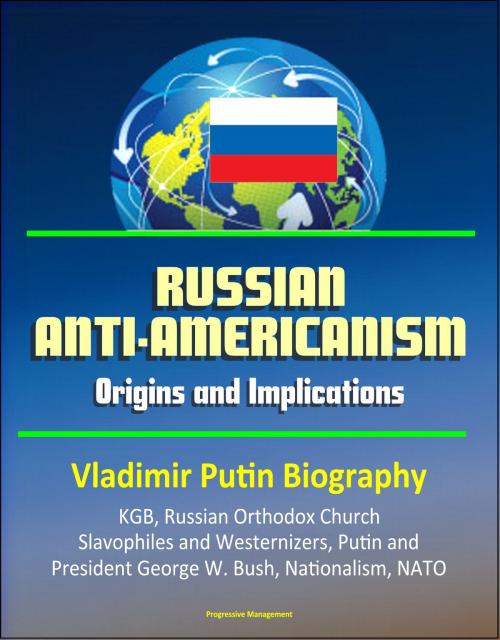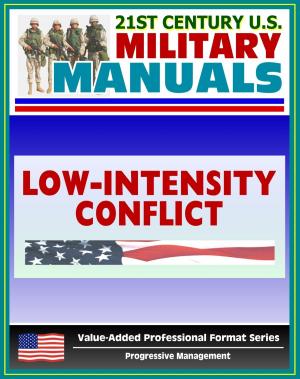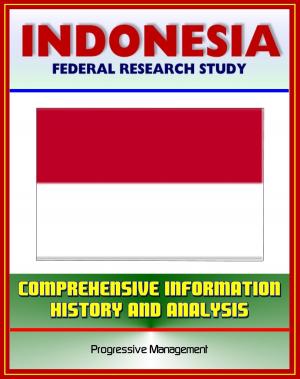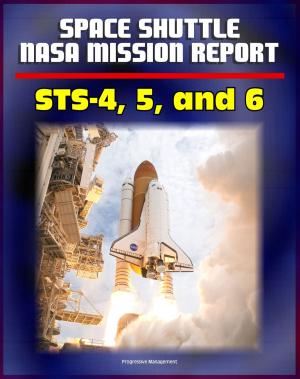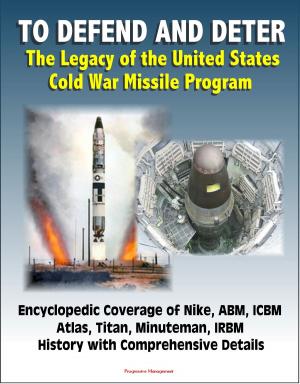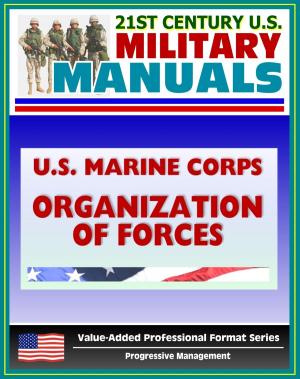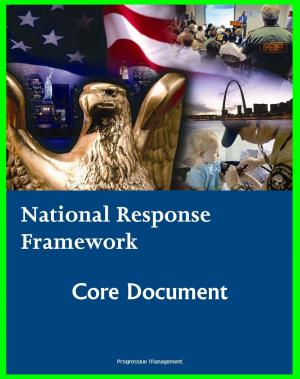Russian Anti-Americanism: Origins and Implications - Vladimir Putin Biography, KGB, Russian Orthodox Church, Slavophiles and Westernizers, Putin and President George W. Bush, Nationalism, NATO
Nonfiction, History, Asian, Russia| Author: | Progressive Management | ISBN: | 9781311791573 |
| Publisher: | Progressive Management | Publication: | April 13, 2015 |
| Imprint: | Smashwords Edition | Language: | English |
| Author: | Progressive Management |
| ISBN: | 9781311791573 |
| Publisher: | Progressive Management |
| Publication: | April 13, 2015 |
| Imprint: | Smashwords Edition |
| Language: | English |
Professionally converted for accurate flowing-text e-book format reproduction, this military study of Russian Anti-Americanism and the recent collapse of post-Soviet relations also presents a fascinating and enlightening biography of Russian President Vladimir Putin. It analyzes twenty-first century Russian anti-Americanism and the historical, political, and strategic relevance of these sentiments. The objective is to identify the root causes of this anti-Americanism and to assess its significance for Russian-American relations.
The overall questions are: 1) What has caused an increase in Russian anti-Americanism in recent years? and 2) What historical, political, and strategic significance can be attributed to this increased Russian dissatisfaction with the United States? The analysis considers possible root causes found at each of the three levels of analysis identified in Kenneth Waltz's framework for studying international relations. These three levels concern the individual, the state (and society), and the international system. At each level, relevant factors are examined that may have contributed to Russian anti-Americanism.
In accordance with Waltz's framework, three subsidiary issues are analyzed. First, how and why has President Vladimir Putin's personality, political mindset, and vision of Russia, contributed to the rise of Russian anti-Americanism? Second, how has Russian nationalism contributed to the rise of anti-American sentiment? The debate between the intellectual heirs to Slavophiles and the Westernizers, and the positions taken by the Russian Christian Orthodoxy are factors in the Russian state and society that deserve attention in this regard. Third, how has Russia's contemporary effort to reestablish its place in the international balance of power affected anti-Americanism, given Russia's degraded position during the 1990s and its attempt to close the Russian-American power gap and advance Russian political opportunity and ideology?
CHAPTER I - RUSSIAN ANTI-AMERICANISM: ORIGINS AND IMPLICATIONS * A. PURPOSE * B. IMPORTANCE * C. HYPOTHESIS AND THEORY * D. BACKGROUND * 1. The Putin Phenomenon * 2. Russian Nationalism * 3. International Balance of Power * E. METHODOLOGY AND SOURCES * F. ROADMAP * CHAPTER II - THE PUTIN PHENOMENON * A. FIRST LEVEL OF ANALYSIS * 1. Perceptions and Misperceptions * 2. Personal Experiences * B. VLADIMIR THE PERSON * 1. Early Years. * 2. Leningrad State University (LGU) * 3. KGB Officer and Duties Abroad * 4. St. Petersburg * 5. The Yeltsin Transition * 6. Russia's Twenty-First Century President * C. PUTIN AND BUSH * 1. September 11, 2001 * 2. Failed Promises * 3. NATO Summit * 4. Political Puppeteer * D. PUTIN'S PUBLIC INFLUENCE * 1. Statistical Approval * E. CONCLUSION * CHAPTER III - RUSSIAN NATIONALISM * A. SECOND LEVEL OF ANALYSIS * B. WESTERNIZERS * 1. Petr Chaadaev. * 2. Vissarion Grigoryevich Belinsky * 3. The Decembrists * C. THE SLAVOPHILES * 1. Ivan Kireevsky * 2. Aleksei Khomyakov * 3. Putin and the Orthodox Church * D. SLAVOPHILES VS. WESTERNIZERS * E. CONCLUSION * CHAPTER IV - BALANCE OF POWER * A. THIRD LEVEL OF ANALYSIS * 1. Defensive Realism * 2. Offensive Realism * B. ANTI-BALLISTIC MISSILE TREATY * C. CONVENTIONAL FORCES IN EUROPE * 1. Warsaw Pact and CFE Ratification * 2. Political Considerations * 3. Russia's Continued Presence in Georgia * D. NATO * E. START II * F. BALLISTIC MISSILE DEFENSE * G. NUCLEAR CONCERNS * H. RUSSIA'S NAVAL CAPABILITY * I. RUSSIAN-GEORGIAN CONFLICT * J. CONCLUSION * CHAPTER V - CONCLUSION * A. TWENTY-FIRST CENTURY RUSSO-AMERICAN RELATIONS * 1. Pacifying the Russian Bear * 2. Jackson-Vanik Amendment
Professionally converted for accurate flowing-text e-book format reproduction, this military study of Russian Anti-Americanism and the recent collapse of post-Soviet relations also presents a fascinating and enlightening biography of Russian President Vladimir Putin. It analyzes twenty-first century Russian anti-Americanism and the historical, political, and strategic relevance of these sentiments. The objective is to identify the root causes of this anti-Americanism and to assess its significance for Russian-American relations.
The overall questions are: 1) What has caused an increase in Russian anti-Americanism in recent years? and 2) What historical, political, and strategic significance can be attributed to this increased Russian dissatisfaction with the United States? The analysis considers possible root causes found at each of the three levels of analysis identified in Kenneth Waltz's framework for studying international relations. These three levels concern the individual, the state (and society), and the international system. At each level, relevant factors are examined that may have contributed to Russian anti-Americanism.
In accordance with Waltz's framework, three subsidiary issues are analyzed. First, how and why has President Vladimir Putin's personality, political mindset, and vision of Russia, contributed to the rise of Russian anti-Americanism? Second, how has Russian nationalism contributed to the rise of anti-American sentiment? The debate between the intellectual heirs to Slavophiles and the Westernizers, and the positions taken by the Russian Christian Orthodoxy are factors in the Russian state and society that deserve attention in this regard. Third, how has Russia's contemporary effort to reestablish its place in the international balance of power affected anti-Americanism, given Russia's degraded position during the 1990s and its attempt to close the Russian-American power gap and advance Russian political opportunity and ideology?
CHAPTER I - RUSSIAN ANTI-AMERICANISM: ORIGINS AND IMPLICATIONS * A. PURPOSE * B. IMPORTANCE * C. HYPOTHESIS AND THEORY * D. BACKGROUND * 1. The Putin Phenomenon * 2. Russian Nationalism * 3. International Balance of Power * E. METHODOLOGY AND SOURCES * F. ROADMAP * CHAPTER II - THE PUTIN PHENOMENON * A. FIRST LEVEL OF ANALYSIS * 1. Perceptions and Misperceptions * 2. Personal Experiences * B. VLADIMIR THE PERSON * 1. Early Years. * 2. Leningrad State University (LGU) * 3. KGB Officer and Duties Abroad * 4. St. Petersburg * 5. The Yeltsin Transition * 6. Russia's Twenty-First Century President * C. PUTIN AND BUSH * 1. September 11, 2001 * 2. Failed Promises * 3. NATO Summit * 4. Political Puppeteer * D. PUTIN'S PUBLIC INFLUENCE * 1. Statistical Approval * E. CONCLUSION * CHAPTER III - RUSSIAN NATIONALISM * A. SECOND LEVEL OF ANALYSIS * B. WESTERNIZERS * 1. Petr Chaadaev. * 2. Vissarion Grigoryevich Belinsky * 3. The Decembrists * C. THE SLAVOPHILES * 1. Ivan Kireevsky * 2. Aleksei Khomyakov * 3. Putin and the Orthodox Church * D. SLAVOPHILES VS. WESTERNIZERS * E. CONCLUSION * CHAPTER IV - BALANCE OF POWER * A. THIRD LEVEL OF ANALYSIS * 1. Defensive Realism * 2. Offensive Realism * B. ANTI-BALLISTIC MISSILE TREATY * C. CONVENTIONAL FORCES IN EUROPE * 1. Warsaw Pact and CFE Ratification * 2. Political Considerations * 3. Russia's Continued Presence in Georgia * D. NATO * E. START II * F. BALLISTIC MISSILE DEFENSE * G. NUCLEAR CONCERNS * H. RUSSIA'S NAVAL CAPABILITY * I. RUSSIAN-GEORGIAN CONFLICT * J. CONCLUSION * CHAPTER V - CONCLUSION * A. TWENTY-FIRST CENTURY RUSSO-AMERICAN RELATIONS * 1. Pacifying the Russian Bear * 2. Jackson-Vanik Amendment
